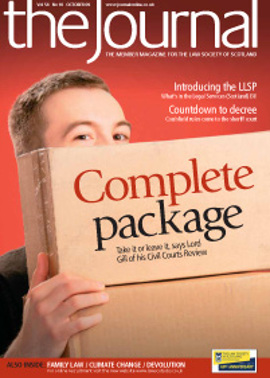Settlement in the West Bank
Regarding Dr Adler’s response (Journal, September, 26) to my article “Unequal before the law” (Journal, June, 22), according to the United Nations’ Office for the Co-ordination of Humanitarian Affairs in the occupied Palestinian territory (oPt), Israeli settlements and their infrastructure including roads take over 38% of the occupied West Bank, not 2% of the oPt as Dr Adler states. Israeli settlements deprive Palestinians of access to land and water and they also restrict their freedom of movement. As the World Bank has argued in numerous reports, this impact is detrimental to the Palestinian economy and increases poverty.
There are 600 physical obstacles blocking Palestinian movement in the West Bank. Many roads there are prohibited to Palestinians while Israelis move on them freely. In order to protect Israeli settlers in the West Bank it is the movement of the occupied people, the Palestinians, which is restricted and not that of the settlers.
The presence of the settlers is illegal under the Fourth Geneva Convention, but it also increases security risks for Israel and prevents a negotiated settlement of the conflict between Israel and the Palestinians being reached. The United Nations and every member state, except Israel, have always regarded Israeli settlements in the oPt as illegal, and numerous UN Security Council resolutions have called for an end to the settlement project.
No one denies that Israel has the right to defend its citizens, but if Israel is concerned about the safety of Israelis, why has it encouraged 500,000 Israeli settlers to go and live in the West Bank where 2.4 million Palestinians reside?
In 2004, the International Court of Justice, the world’s most senior legal authority, stated that the sections of the Israeli barrier built within the occupied West Bank violate international law and must be dismantled. The UN General Assembly demanded that Israel comply with the ICJ’s opinion. However, Israel continues erecting the barrier.
Has Dr Adler ever visited the occupied West Bank? I have and I have seen with my own eyes the humanitarian impact on the Palestinians of Israel’s settlement policy. Dr Adler may not be aware of what an impediment to peace this policy has been, but fortunately, the US President is and he is trying to bring about change.
In this issue
- The Combined Standard Clauses (2009 edition)
- Preserving a legal inheritance: settlement rights in the "Occupied Palestinian Territories"
- The European Court and the duty to investigate deaths
- Chief Executive's SGM address
- Shelter's online resources
- Musical copyright and contract
- The international swap shop
- Headline fortnight
- The Gill Report? What's not to like?
- Solicitor advocates and conflicts of interest
- Settlement in the West Bank
- Package deal
- RoS = economic value
- Defining the future
- Global leader?
- Dog's chance
- Coulsfield rules OK
- Money and your life
- Experts on the case
- At the hub, 10 years on
- Guardians: don't look to the Fund
- From the Brussels office
- Ask Ash
- Making the most of ABS
- Planning for growth
- The perils of posting
- ARTL: friend or foe?
- Where privacy prevails
- How was it for you?
- Agreeing rescues with creditors
- Adopting new solutions
- Divorce for gender change
- Scottish Solicitors' Discipline Tribunal
- Book reviews
- Website review
- A safe pair of hands tops the bill
- Law out of step






